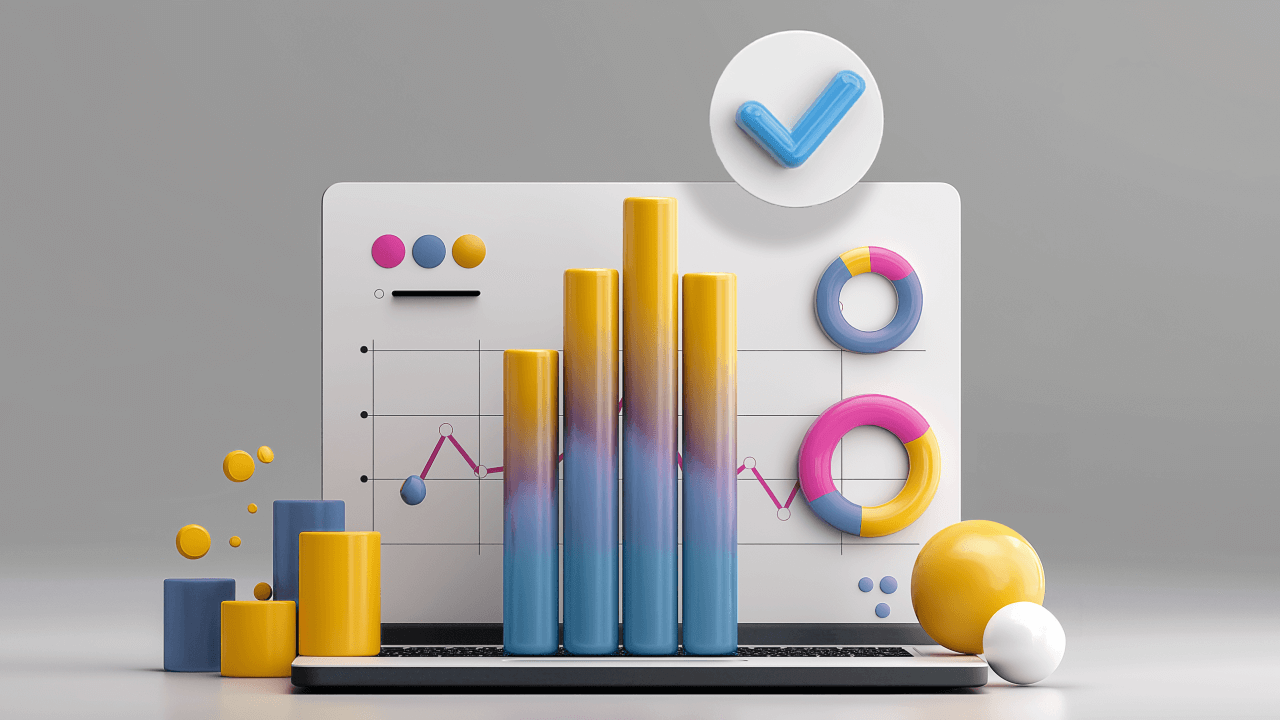How to use dashboard KPI tools to enhance your analytics data

Almost any business can benefit from data tracking and analysis. Even if you think your business is too small or too unique, data can still be helpful in understanding what is happening with your company.
In order to make informed decisions, you need to have accurate data that can be trusted and consistently tracked. This data will help you understand how your company is performing and where it needs improvement.
You can keep track of your company’s data with dashboard KPI tools. These tools help you view your key performance indicators (KPIs) in one place and see any changes from previous periods, as well as the drivers of those changes. This way, you’ll be able to make informed decisions based on this data.
Dashboard KPI tools also allow you to see different types of data. This includes:
- Financial information: revenue, costs, and profit
- Product-related data: performance and usage
- People management: turnover, productivity, and customer feedback
What benefits does using a dashboard KPI tool have for your organization? Let’s break down a few ways you can use this information to enhance your analytics data.

Defining KPIs
Before using a dashboard KPI tool, you should ask yourself: what type of information do I want to track and what business questions do I need to answer? For example, you could create one for your financial KPIs and another for your product-related data.
What metrics do you track and use? You might want to look into:
- Revenue: You can track revenue growth and compare it with costs and profit
- Costs: You might want to see your total expenses or view more detailed information about each type of cost
- Profits: How much money is your business making?
Knowing the data you want to track and understanding its meaning can help you to create your KPIs.
Tracking your data
Now that you’ve defined what data you want to track, let’s look at how you can do so. There are two main ways to keep track of the information: manually or automatically.
Manually: You can update your KPI whenever you want. To do this, you can set up a system that allows you to track each metric as it changes over time. This might be difficult, depending on how many metrics you’re tracking and how often those metrics change. Manual KPIs often become tedious and may become outdated if employees do not keep them updated.
Automatically:
Dashboard KPI tools allow users to set up automatic KPIs and other important data updates. This means you’re less likely to miss any changes, and you can keep up with your data at all times.
With the power of dashboard KPI tools, you no longer have to worry about staying up to date with your company’s data. You can simply log in and see how you’re performing at all times, giving you the opportunity to make informed decisions about your company.
Using dashboard KPIs to enhance your data
Whatever system you choose to use for tracking your company’s information, it’s helpful to have a place where the data is easily accessible>. Dashboard KPI tools allow users to access KPIs and the information behind those metrics easily.
You can view your KPIs in one place and see any changes from previous periods, as well as the drivers of those changes. Just knowing this data is enough to make it useful; you’ll be able to use this information to make informed decisions based on the data presented.
There are several benefits that come with using this type of system:
1. It allows you to put all of your data in one place: This means you won’t have to worry about multiple spreadsheets or other types of software. Even if your organization uses those, dashboard KPI tools allow you to transfer information from those systems into one location.
2. It makes data easy to access: You no longer need a computer science degree to understand the numbers behind your company’s performance. Dashboard KPI tools allow you to understand the metrics behind your data easily.
3. It tracks crucial information: With automated updates, you’re less likely to miss key changes in your data. This means that no matter what type of decisions you need to make, you’ll be able to do so based on accurate information.
Having access to this critical data is the first step toward making informed decisions. Learn more about dashboard KPI tools today, and see how you can use information like this to drive your business forward.

Turning dashboard KPI data into actionable decisions
Dashboard KPI tools allow you to monitor metrics and quickly access information about your company’s performance. This can help you turn data into actionable insights for decision making.
For example, tracking KPIs for your financials might lead to changes in your budget or product updates that help improve overall performance.
You’ll be able to take action based on your KPIs without any extra legwork. Similarly, tracking KPIs that affect your marketing and customer relations can lead to better interactions with clients, which might improve the way customers view your business.
Choosing the right dashboard KPI tool for your business
There are several dashboard KPI tools out there, so it’s important to choose one that matches your company’s needs. Before you choose a system, ask yourself the following questions:
- What type of data does my company need access to?
- When do we need to monitor this information?
- How often will data change?
- Do I need to track KPIs or other information?
- Do I need automatic updates for any of this data?
Once you know what you want and when you want it, it’s easier to choose a dashboard KPI tool that is right for your company. Take the time to choose the right system, and you’ll be able to access important information at all times.
Conclusion
There are many different types of dashboard KPI tools that can help your business’s performance. The key element that makes these systems useful is that they allow users to access information about KPIs and other elements of company performance. If you want to turn data into actionable decisions, this can be a huge help.
When choosing a dashboard KPI tool for your business, consider the type of data you want to track as well as how often it changes. When you know what you want to track and when the data changes, you’ll be able to choose a system that can help your business grow.
Domo transforms the way these companies manage business.








